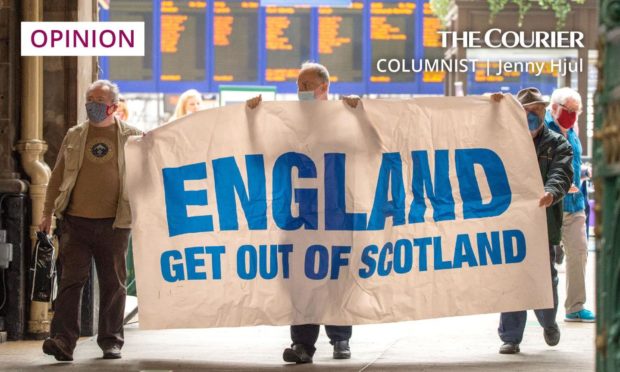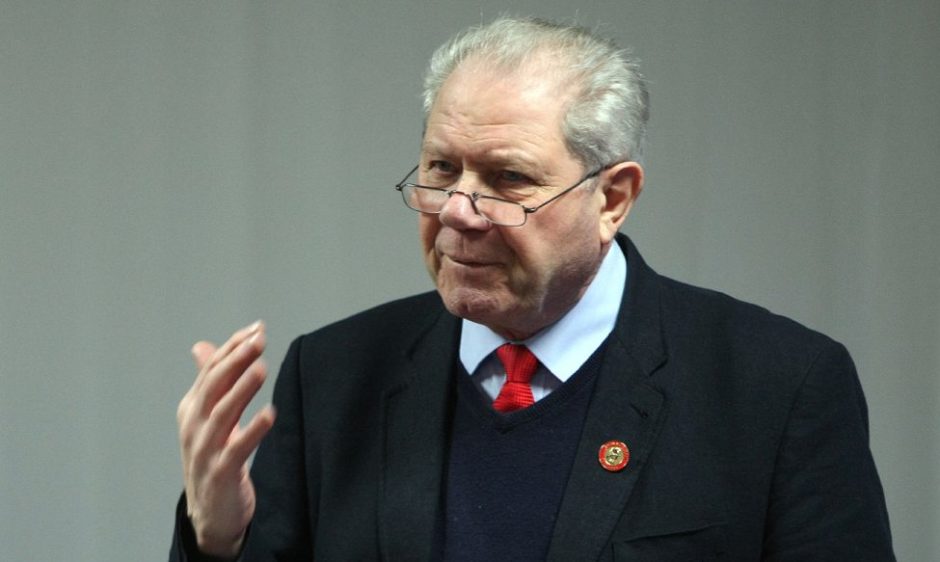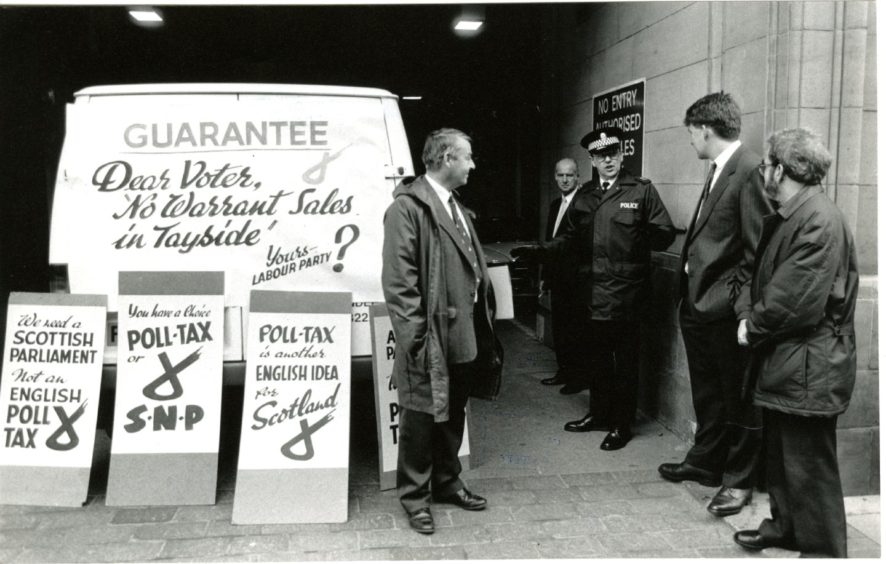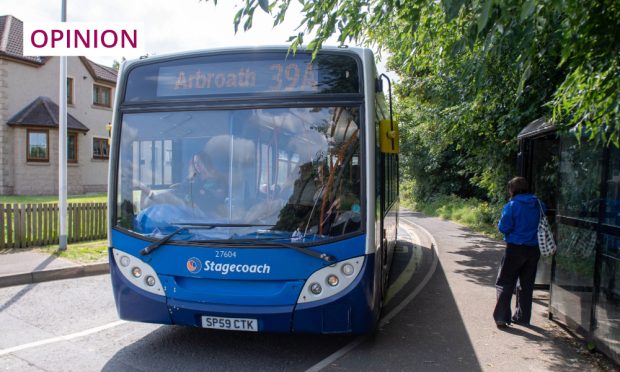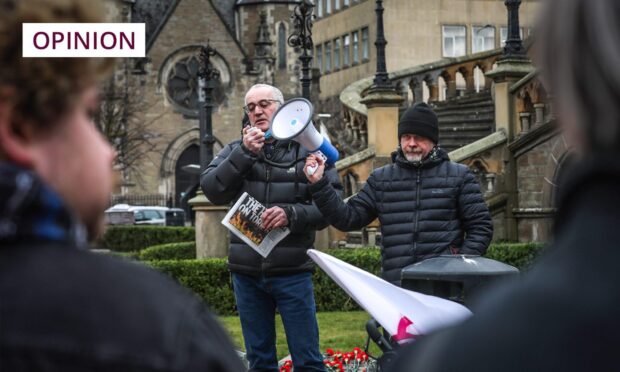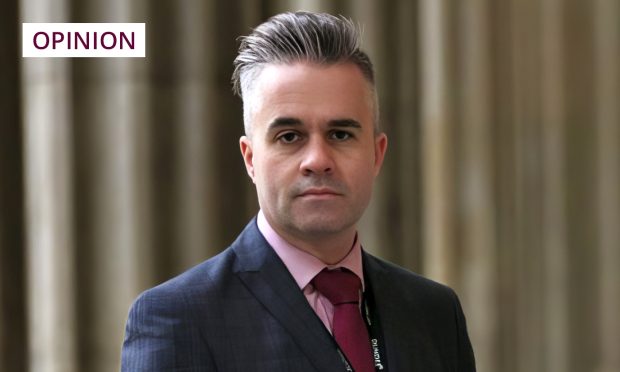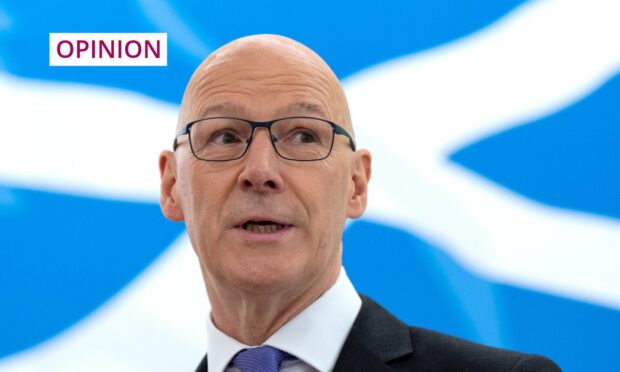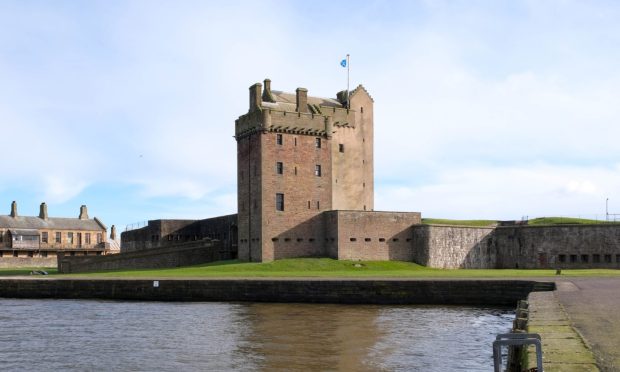Anyone who dares to suggest that the Scottish Nationalists are anti-English will quickly get shouted down, as new Tory MSP Tess White discovered to her detriment last week.
Her mistake was to aim her barb at the First Minister, who bristles at such accusations although they are not wholly without foundation.
Nicola Sturgeon made an almighty fuss and White had to apologise for what was deemed a racist slur, even though the English are not necessarily a different race to the Scots.
The SNP leader must, of course, be seen to be above those members of her party who, without doubt, are anti-English.
But there is often a fine line between bashing Westminster and denigrating the entire country.
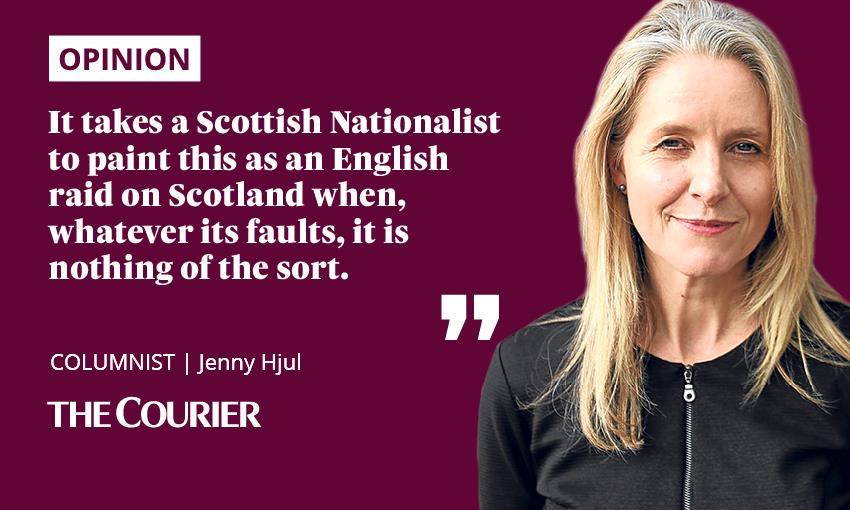
There are nationalist zealots who don’t even recognise the difference and whose desire to break up Britain seems based purely on their dislike of the English.
But higher up the party echelons, such sentiments are not far from the surface, as members of the party concede.
Jim Sillars, former deputy leader of the SNP, told The Sunday Times: “I don’t think we should exaggerate the undertone of anti-Englishness that exists in Scotland.
“But it is there, and the grudge and grievance tactic of the SNP leadership does play to it and keeps it alive.”
This was certainly the case during the Covid pandemic, when Sturgeon did little to discourage an England/Scotland divide.
At its extremes we even saw anti-English vigilantes brandishing “keep out” banners at the border.
Even within the more refined circle of government advisers, there was a decided anti-English slant from some quarters, which blamed those travelling north for spreading contagion and insisted Scotland could have beaten the disease if it had been independent.
National Insurance rise painted as ‘raid’
The latest source of anti-English fury is Boris Johnson’s proposed increase in National Insurance contributions to pay for social care reform.
National Insurance will rise by 1.25% until a new health and social care tax is introduced in April 2023.
It is not only the SNP that opposes this plan. There are plenty of critics in the Conservative government’s own ranks.
Raising taxes on working people so pensioners (who don’t pay National Insurance) can hold on to more of their assets when they need care, as is planned, does sound tone deaf in the current climate.
But it takes a Scottish Nationalist to paint this as an English raid on Scotland when, whatever its faults, it is nothing of the sort.
Ian Blackford, the SNP’s Commons leader, said the initiative was effectively “a new Tory poll tax on Scottish families – who would be forced to pay for a crisis in England caused by the failure of Westminster governments Scotland didn’t vote for”.
Invoking the spectre of the poll tax – Thatcher’s hated fiscal experiment that did much to boost the secessionist cause – is a clever ploy by Blackford but a deliberately misleading one.
Any money raised through the tax increase could benefit pensioners in Scotland as much as those in England through the Barnett Formula consequentials.
In fact, according to a senior economist at the Institute for Fiscal Studies, the Scottish government would receive up to £50 million more than what Scots would pay out under the proposal.
David Phillips said Scots would pay between £775-800 million in National Insurance if the tax rise was implemented but would receive £825-850 million in Barnett funds.
Far from being “shafted” by Westminster, as Blackford suggested, Scots would be better off, depending on how ministers here decided to spend the extra funds.
And that is the issue for Scotland, not any political argument with Westminster.
SNP taxes target middle income earners
Scots are said to pay the highest taxes in the UK, thanks to the SNP, which has never had any qualms about fleecing middle-income earners.
As social care is a devolved matter, the Scottish government could choose not to spend the money it gets from Johnson’s National Insurance increase, although the sum could easily finance the SNP’s plans for a national care service.
So, how much of these resources will ever reach those who most need them?
That is those families on relatively low incomes with modest assets but who fail to meet the means test for state care.
Public spending per capita is higher in Scotland than the rest of the UK.
But this is not reflected in improved health, education, transport, care or any other of our major services.
That is because instead of reforming the public sector, the SNP’s focus during its 14 years in power has been on securing independence.
📣 @NicolaSturgeon: "This programme addresses our current reality, but also looks forward with confidence and ambition to a brighter future.
A better Scotland, as part of a better world, is waiting to be built."
👇🏼 Read the full #ScotPfG statement here.https://t.co/ykOhyuxwbf
— The SNP (@theSNP) September 7, 2021
As Sturgeon unveiled her Programme for Government yesterday, she did nothing to calm business fears, doggedly pursuing another independence referendum even if that comes at the expense of Scotland’s economic recovery.
Stirring up antipathy towards England, as her foot soldiers do so well, may serve the First Minister’s long-term political goals.
But, as usual, it her government, and not Boris Johnson’s, that inflicts the most pain on Scottish people.
